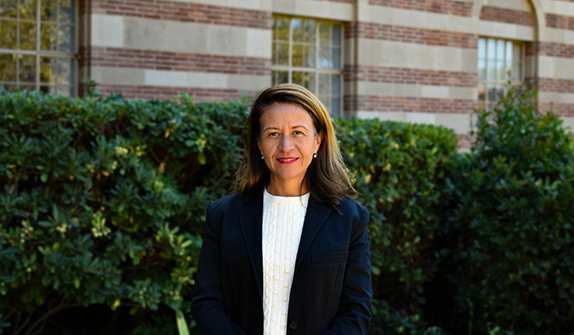Department of Education
Transforming Education.
Transforming Lives.
Learning Happens Everywhere
Through scholarship, teaching, institution, and community, our Department of Education prepares tomorrow’s leaders to fearlessly pursue the incredible potential of an educational system that embraces and adapts to difference.
We train educators and researchers to cultivate equity and confront systemic inequity, to reshape how classrooms and communities function and who they serve, to frame intellect as a treasure and access to resources as an inherent right. It is our mission to help humankind thrive by uplifting knowledge and empowering truth.
UCLA is a global public research university that began as a teacher’s college, a degree in Education was the first awarded at UCLA. Ed&IS is the longest running school on campus.
With over a century of experience in championing bold new viewpoints in education, the Department is a renowned leader in the study and practice of urban education, student testing and assessment, teacher and continuing education and development — particularly in urban communities and multi-ethnic environments. We are esteemed for our focus on early childhood development, including issues of access, equity, and quality that face K-12 and higher education. In the Department’s research centers, groundbreaking research is more than a concept — it’s a plan of action.
Undergraduate Programs in Education: B.A. & Minors

Education and Social Transformation Major

Education Studies Minor

Information and Media Literacy Minor

Science Education Affiliated Minor

Visual and Performing Arts Education Affiliated Minor
Graduate Programs in Education: M.A. & Ph.D.

M.A. in Education

Ph.D. in Education

Joint Doctoral Ph.D. Program in Special Education

Advanced Quantitative Methods in Education and Research Program
Professional Programs in Education: M.Ed. & Ed.D.

Educational Leadership Program (Ed.D.)

Principal Leadership Institute (M.Ed.)

Student Affairs (M.Ed.)

Teacher Education Program (M.Ed.)

Transformative Coaching and Leadership (M.Ed.)

UCLA M.D./M.A. Education Articulated Degree
Professional Leadership and Development

Academy for Excellence in Medical Education

UCLA Professional Leadership and Coaching Academy

UCLA Women's Community College Leadership Academy*

UCLA Women's School Leadership Academy*

University Women's Leadership Academy for Mid-Career Professionals*

Our Community
We train educators and researchers to cultivate equity and confront systemic inequity, to reshape how classrooms and communities function and who they serve, to frame intellect as a treasure and access to resources as an inherent right. It is our mission to help humankind thrive by uplifting knowledge and empowering truth.
Meet Our Doctoral Students Meet Our Faculty
